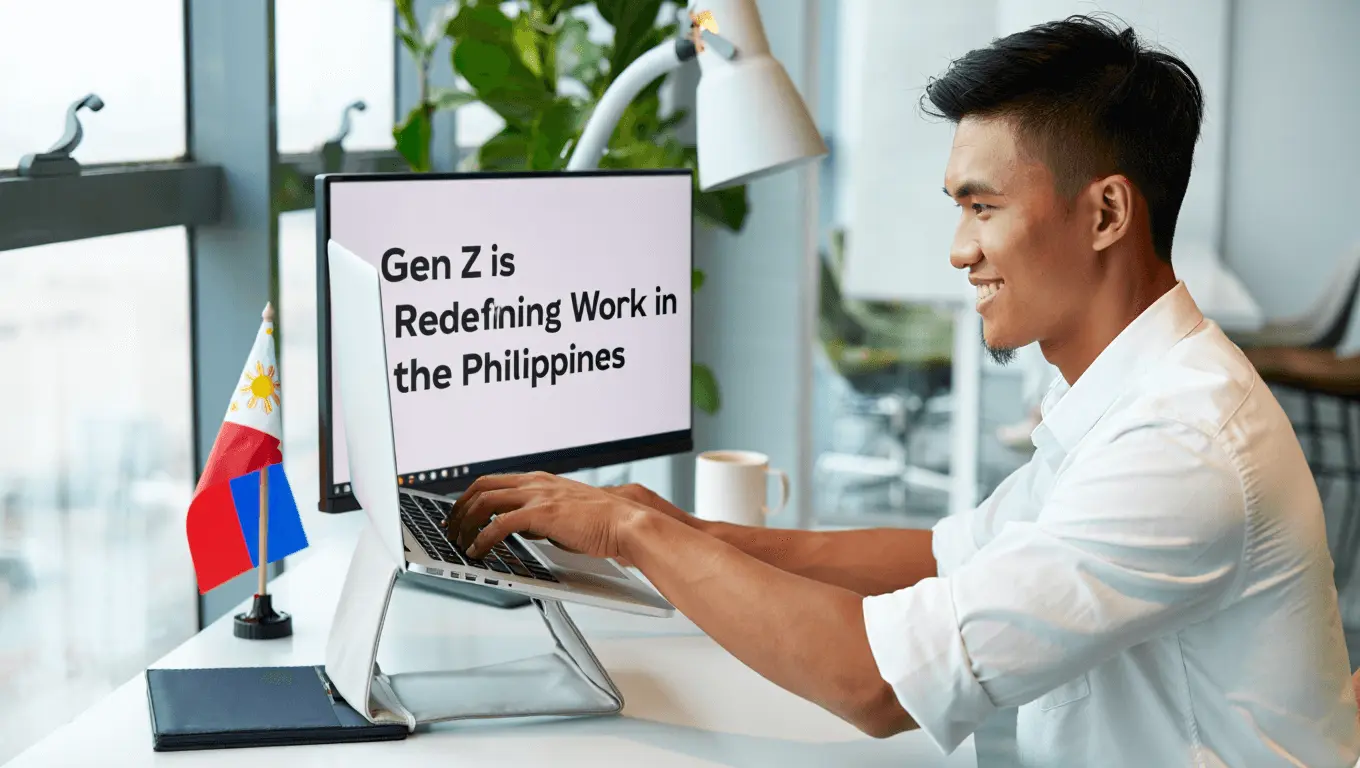How Gen Z is Redefining Work in the Philippines

A dynamic transformation is taking place among the Filipino youth stepping into the workforce, signaling a powerful shift that the government and private sector must recognize if the country aims to maximize the next generation’s role in driving economic growth.
The Search for Meaningful Work in a Rapidly Growing Economy
Young Filipinos today are navigating a job market shaped by rising living costs, evolving corporate expectations, and new global demands. According to the Department of Labor and Employment (DOLE), there is a marked change in how the youth approach employment. Today’s young professionals are searching for jobs that do more than pay the bills. They want roles that align with global trends, personal values, and future-focused industries.
Labor Undersecretary Carmela Torres reports a notable rise in interest toward flexible work setups, digital-driven roles, and companies with a focus on sustainable practices. These preferences reflect the broader transformation occurring in workplaces worldwide and underscore the urgent need for Philippine employers to keep pace.
Flexibility and Digital Skills: Essential for the Modern Filipino Worker
As the workplace evolves, so do the skills required for success. Government agencies and private companies are encouraged to act quickly and adopt strategies that prepare young Filipinos for tomorrow’s jobs. This means expanding training opportunities in digital skills, supporting flexible work arrangements, and investing in programs that match young workers with roles in emerging green and digital sectors.
In April 2025, DOLE estimates placed 6.415 million youth aged 15 to 24 in the labor force, with 5.67 million already employed. The number continues to grow as the youth population rises, reinforcing the need for labor market reforms that are both responsive and anticipatory.
- Expand digital upskilling for youth
- Adopt remote/hybrid policies
- Promote fair, output-based evaluations
- Protect all workers, including freelancers
Embracing Flexible Work Arrangements for Gen Z
Senator Sherwin Gatchalian highlights the need for policies that support various forms of remote work, including telecommuting, work-from-home, and hybrid setups. These approaches empower young professionals to manage their productivity and well-being, while saving time and money lost to daily commutes.
For many Gen Z employees, the idea of going to an office every day seems outdated. Advances in technology allow young professionals to be as productive, if not more, while working from spaces where they feel most comfortable. The post-pandemic shift to remote and hybrid work remains strong, and for this generation, work-life balance is not negotiable.
The Importance of Work-Life Balance
The line between work and personal life is clearer for today’s youth. Young Filipinos are vocal about protecting their time for family, leisure, and self-development. Flexible schedules, remote work options, and digital collaboration tools all contribute to this healthy balance.
Employers who prioritize work-life harmony are more likely to attract and retain top talent among the new generation.
Strengthening Legal Protections for Remote Workers
Supporting flexible work requires robust legal safeguards. The Telecommuting Act, passed in 2019, laid the groundwork for remote work in the Philippines, recognizing its value long before it became a necessity during the pandemic.
Today, strict enforcement and consistent implementation of this law are essential. Companies must put in place clear guidelines that support fair evaluation, equitable compensation, and ongoing career development for remote and hybrid workers.
Freelancers and virtual assistants, a rapidly growing segment, also need social protection, access to healthcare, and legal remedies against short-term employers who fail to honor contracts. Expanded access to benefits and programs, including medical insurance and retirement plans, will help these workers achieve financial stability, whether they work for local firms or overseas clients.
Gen Z in the Workforce: What Makes Them Different?
Born between 1996 and 2012, Gen Z now makes up about 32 percent of the global population and the largest share of entry-level employees in the Philippines. Their priorities are distinct from older generations.
They demand autonomy, value continuous learning, and expect employers to embrace innovation. Studies show that Gen Z workers will not hesitate to leave for better opportunities locally or abroad, if their expectations are not met.
The COVID-19 pandemic accelerated the shift to flexible work and digital skills. For Gen Z, the ability to combine work and leisure, avoid stressful commutes, and contribute to organizations from any location is a baseline requirement.
Addressing the Needs of the Emerging Filipino Workforce
Adapting to this shift means rethinking how both public and private sectors approach talent management. Key steps include:
- Upskilling in Digital Technologies: From software development to digital marketing, young Filipinos must have access to world-class training that prepares them for high-demand roles.
- Expanding Flexible Work Policies: Companies should create clear policies for hybrid and remote work, supported by technology and strong management practices.
- Ensuring Equal Opportunity: All workers on-site and remote, should be evaluated on their output and impact, not on where they work.
- Investing in Social Protection: Freelancers and remote workers need pathways to social security, medical benefits, and contract enforcement to protect their livelihoods.
What’s at Stake: Innovation and Long-Term Growth
Flexible work arrangements and a strong focus on work-life balance are now essential components of a thriving workplace. By aligning policies with the preferences of the young workforce, the Philippines stands to benefit from increased productivity, greater innovation, and sustained economic growth.
Failing to adapt means risking the loss of young talent to opportunities abroad or to companies better attuned to their needs.
The Way Forward
As the labor landscape evolves, all stakeholders must stay ahead of the curve. The rise of Gen Z in the workforce is an opportunity for the Philippines to lead in Asia’s digital and sustainable sectors.
References
1. DOLE Official Website
- URL: https://www.dole.gov.ph
- Relevant Sections:
- Labor Market Trends (Youth Employment, Remote Work Policies)
- Telecommuting Act (RA 11165) Implementation
- Employment Statistics (Youth Labor Force Data)
2. DOLE Reports on Youth Employment
- The article cites DOLE estimates of 6.415 million youth (15-24) in the labor force (April 2025 projection).
- Check DOLE’s Labor Force Survey (LFS) or Bureau of Local Employment (BLE) for official reports.
3. Telecommuting Act (RA 11165)
- Full Text: https://www.officialgazette.gov.ph/2018/12/20/republic-act-no-11165/
- DOLE’s guidelines on remote work policies for employers.
4. Philippine Statistics Authority (PSA) Labor Data
- URL: https://psa.gov.ph/statistics/labor
- Provides official employment figures, including youth participation rates.
Additional Sources
- World Bank Philippines Reports: https://www.worldbank.org/en/country/philippines (Covers future-of-work trends).






